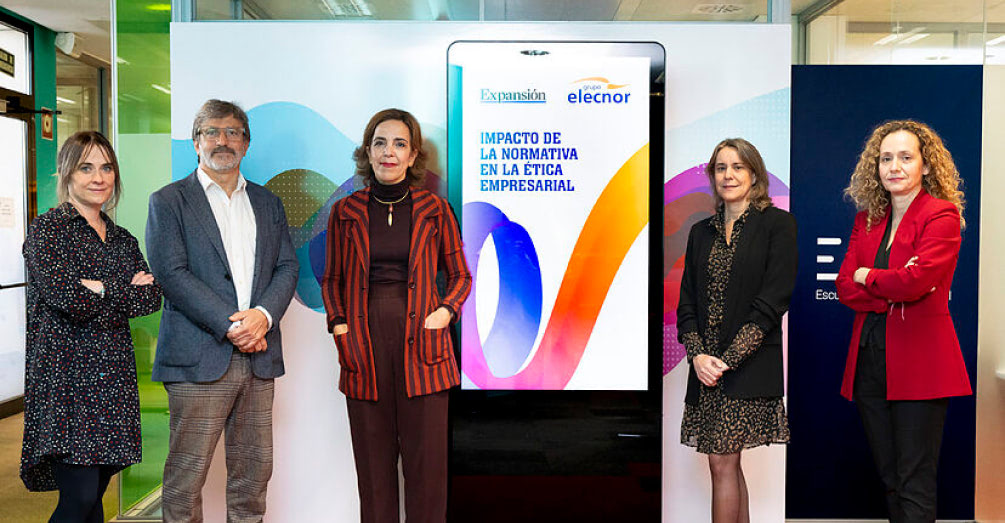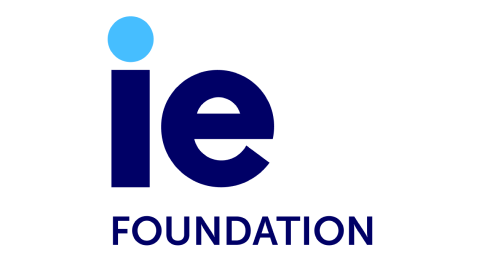ELECNOR, IE Foundation, and EY join the Forum on Business Ethics and ESG Regulation

The forum “Impact of Regulation on Business Ethics,” organized in collaboration with EXPANSIÓN, brought together experts to debate the challenges posed by the growing ESG regulation in Europe and its impact on sustainability and corporate governance.
Madrid, January 9th 2025 – ELECNOR, IE Foundation, and EY held their first joint event as partners of the Knowledge Hub on Ethical Business with the forum “Impact of Regulations on Business Ethics”, organized in collaboration with EXPANSIÓN. This event brought together experts to discuss the challenges posed by the increasing regulation of ESG (Environmental, Social, and Governance) criteria in Europe and how companies can address them from an ethical and sustainable perspective.
The forum featured the participation of Enrique Aznar, Director of the IE-Elecnor Knowledge Hub on Ethical Business; Lourdes Centeno, Partner in charge of Corporate Governance and Capital Markets at EY Abogados; Ruth Fernández, Director of Elecnor’s Sustainability Committee; Marta Casasola, Partner at UHY Fay & Cointegra; and Estela S. Mazo, Chief Editor at EXPANSIÓN. The discussion focused on the challenges posed by European sustainability and governance regulations, such as the Corporate Sustainability Reporting Directive (CSRD), the Corporate Sustainability Due Diligence Directive (CSDD), the Whistleblowing Directive, and the Climate Change Law.
The implementation of the CSRD, applicable since 2024, was described as a cross-cutting effort encompassing the entire organization and its value chain. Ruth Fernández emphasized that this regulation does not only impact the sustainability department but also involves managing, analyzing, and assessing risks and opportunities related to sustainability.
Regarding the practical application of these regulations, Marta Casasola highlighted the importance of avoiding over-implementation, recommending a focus on reporting relevant and meaningful information. According to Lourdes Centeno, the challenge lies not only in the standards required by the CSRD but also in the overlap of regulations and how they interact with each other.
The forum also explored how sustainability data can become key indicators for business improvement. Enrique Aznar explained that extending sustainability expectations across the entire value chain, including suppliers not required to report, is essential to ensure an effective impact aligned with human rights.
Another key discussion point was the Climate Change Law, which sets the goal of climate neutrality by 2050. Ruth Fernández explained that Elecnor has adopted a strategy based on governance, concrete measures, and risk and opportunity management to lead this commitment at the executive level.
Regarding the Corporate Sustainability Due Diligence Directive, Lourdes Centeno explained that its objective is to prevent greenwashing through the implementation of sustainability and human rights standards across the entire organization. This regulation requires a holistic approach that covers policies, processes, and business practices.
Finally, the forum addressed the Whistleblowing Directive, which mandates companies to establish effective reporting channels. Enrique Aznar stressed that beyond promoting a culture of reporting, it is crucial to foster an ethical culture that encourages stakeholders, particularly employees, to voice their concerns about potential breaches. Establishing clear communication channels between companies and employees, where individuals feel comfortable and safe reporting situations that may violate the ethical code, strengthens commitment to corporate values and protects the company’s reputation.
Access the EXPANSIÓN article here to learn more about this forum.



